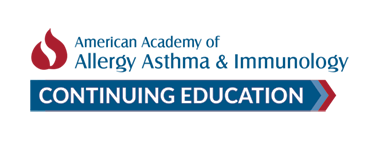2705: Finding Unicorns Among Zebras: When and How to Test COVID-19 Patients for Underlying Immunodysregulatory Conditions
Common Variable Immune Deficiency (CVID) is a heterogeneous group of conditions that are defined by specific clinical criteria. These criteria include the requirement that patients with CVID are deficient in IgG and another immunoglobulin class, with infections and the lack of response to vaccination. It has become clear, however, that CVID is an umbrella diagnosis, including diverse monogenetic defects resulting in at least a humoral immune defect, but also often leads to increased risks of autoimmunity and malignancy. This has been highlighted by the description of patients with ytotoxic T-lymphocyte-associated protein 4 (CTLA) haploinsufficiency, lipopolysaccharide (LPS)-responsive and beige-like anchor protein deficiency, who have additional immune dysregulation, as well as targeted therapy options.
Recent advances in genomics have led to the identification of a set of genetic variants underlying the broad, clinical diagnosis of CVID leading to the improved precision of the diagnosis of these conditions as well as their therapy. Amongst these techniques that are currently being utilized are whole exome sequencing (WES) and/or whole genome sequencing (WGS). Additionally, there are other efforts to identify biomarkers and altered immune mechanisms that may also be used to subset patients.
Credit claiming for this activity will be available through December 31, 2021. Requests to claim credit on or after January 1, 2022 will be subject to an administrative fee.
Target Audience
- Physicians
- Allergists/Immunologists
- Nurses
- Nurse Practitioners
- Allied Health Professionals
Learning Objectives
Upon completion of this activity, participants should be able to:
- Identify which CVID patients are most likely to benefit from genetic testing and broader immunophenotyping
- Describe the use of whole exome sequencing in identifying these defects (e.g. Cytotoxic T-lymphocyte-associated protein 4 (CTLA) haploinsufficiency, LRBA deficiency) including interpretation of straightforward and complex WES results
- Outline the precision therapies that are available for this set of immune dysregulatory conditions
ACCREDITATION STATEMENT
The American Academy of Allergy, Asthma and Immunology (AAAAI) is accredited by the Accreditation Council for Continuing Medical Education to provide continuing medical education for physicians.
DESIGNATION STATEMENT
The American Academy of Allergy, Asthma & Immunology designates this live activity for a maximum of 1.00 AMA PRA Category 1 Credits™. Physicians should claim only the credit commensurate with the extent of their participation in the activity.
CE Designation Statement
The American Academy of Allergy, Asthma, & Immunology (AAAAI) is a Provider, approved by the California Board of Registered Nursing, Provider #10704, for up to1.00 Contact Hours.
CREDIT CLAIMING PERIOD
Credit claiming for this activity will expire at 11:59 pm on December 31, 2021. Requests to claim credit on or after January 1, 2022 will be subject to an administrative fee.
AAAAI PRIVACY POLICY
To verify your participation in educational activities, you may be asked to provide your name, contact information, and/or other descriptors. The AAAAI will not release this information to outside entities. It may be used internally to inform you of other AAAAI educational activities. If you wish to have your information excluded from this process, please contact us at [email protected]
Activity-related questions should be directed to [email protected].
Available Credit
- 1.00 AttendanceAttendance credit.
- 1.00 CECE credit.
- 1.00 CMECME credit.

 Facebook
Facebook X
X LinkedIn
LinkedIn Forward
Forward